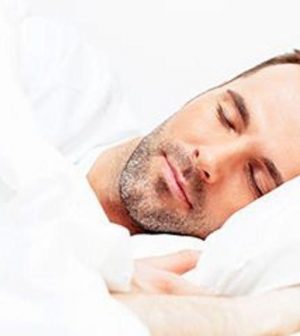- The Best Time of Day to Drink Bone Broth to Maximize Health Benefits
- 8 Ways to Increase Dopamine Naturally
- 7 Best Breads for Maintaining Stable Blood Sugar
- Gelatin vs. Collagen: Which is Best for Skin, Nails, and Joints?
- The Long-Term Effects of Daily Turmeric Supplements on Liver Health
- Could Your Grocery Store Meat Be Causing Recurring UTIs?
- Are You Making This Expensive Thermostat Error This Winter?
- Recognizing the Signs of Hypothyroidism
- 10 Strategies to Overcome Insomnia
- Could Artificial Sweeteners Be Aging the Brain Faster?
Do You Have ‘COVID-somnia’? These Sleep Tips Might Help

If the pandemic is causing you to lose sleep at night, you’re not alone.
About 56% of Americans say they have what experts have dubbed “COVID-somnia,” an increase in sleep disturbances.
Of people reporting these disturbances, 57% say they’re having trouble falling or staying asleep. About 46% are sleeping less; 45% are experiencing worse sleep; and 36% are having disturbing dreams, according to a survey commissioned by the American Academy of Sleep Medicine (AASM).
“COVID-somnia can be brought on by multiple stressors: fears about the pandemic, concern for loved ones, financial worries, and limited socialization,” said Jennifer Martin, a licensed clinical psychologist and president-elect of the AASM board of directors.
In the survey, men were more likely to report sleep disturbances and 35- to 44-year-olds had the highest rates of COVID-somnia at 70%. Those 55 and older were most likely to report trouble falling asleep or staying asleep.
Insomnia is often caused by stress or lifestyle factors, and those have, of course, changed greatly during these nearly two years of the pandemic. Some of those lifestyle changes include not waking at the same time each day or spending more time watching TV or looking at smartphones.
The academy characterized insomnia as different from occasional trouble falling asleep, because it causes both the sleep disturbance and daytime problems, such as fatigue and irritability.
“The best way to get healthy sleep during these unprecedented times is to be intentional about your sleep habits and routines,” Martin said in an AASM news release.
Maintaining a consistent schedule can help. Aim to get seven hours of sleep a night and strive to go to bed and get up at the same times seven days a week.
Reduce your screen time, and spend less time on news and social media before bed, the academy advises. Turn off all electronics at least 30 minutes before bedtime.
Keep your sleeping environment and routine peaceful, with a cool, quiet, dark room. Store electronics out of reach and relax with a warm bath or shower, reading or meditation 30 minutes before bedtime.
If your sleep struggles persist, talk to your health care provider. Most sleep problems respond well to treatment, such as cognitive behavioral therapy for insomnia.
More information
The American Psychological Association has more about pandemic-related sleep problems.
SOURCE: American Academy of Sleep Medicine, news release, Dec. 28, 2021
Source: HealthDay
Copyright © 2026 HealthDay. All rights reserved.










